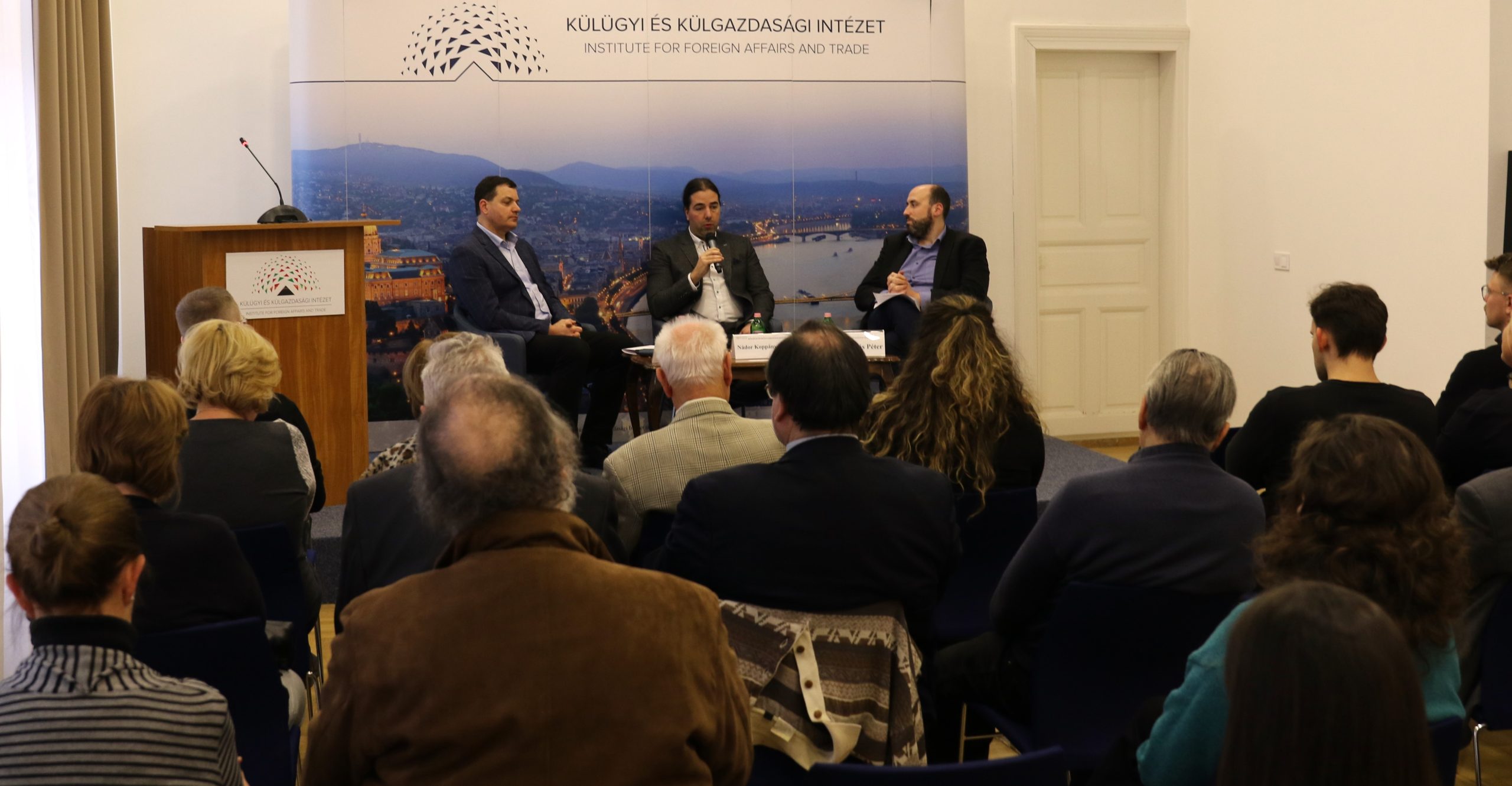On January 25th, the Institute for Foreign Affairs and Trade (IFAT) hosted a roundtable discussion titled: “Pope Benedict XVI: Theologian in World Politics”. Participating in the discussion were László Odrobina, senior researcher at IFAT and vice-rector at St. Atanaz Greek catholic college, and Koppány Zsombor Nádor, senior researcher at the St. Stephen Institute, as well as head of research group at KRE-KIDA. The discussion was moderated by Tamás Baranyi, Deputy Director for Strategy at IFAT. While one might ask what role the pope might play in global politics, one must not forget that he is the head of state for the Vatican, and it is an office with global influence. Koppány Zsombor Nádor stressed, that the activities of the pope cannot be separated from era in which he operates. For Benedict, a formative experience was 1968, when his displeasure with the protest movement made him develop a more conservative stance. As the most significant theologian of the 20th Century, even Pope John Paul II. could rely on his expertise. László Odrobina highlighted his 1965 work the “Jesus of Nazareth”, in which he cleared the Jewish community of the sin of murdering Jesus, thereby facilitating an improvement of the relationship between the State of Israel and the Vatican. As the pope, he made his decisions as a theologian, and remained a more reserved personality compared to his predecessor as well as successor. Alongside the anti-communist John Paul II. and the focus of Francis I. on contemporary issues, their trio accentuates the diversity of the modern Catholic Church as an institution.
Photos by Institute for Foreign Affairs and Trade (IFAT)

